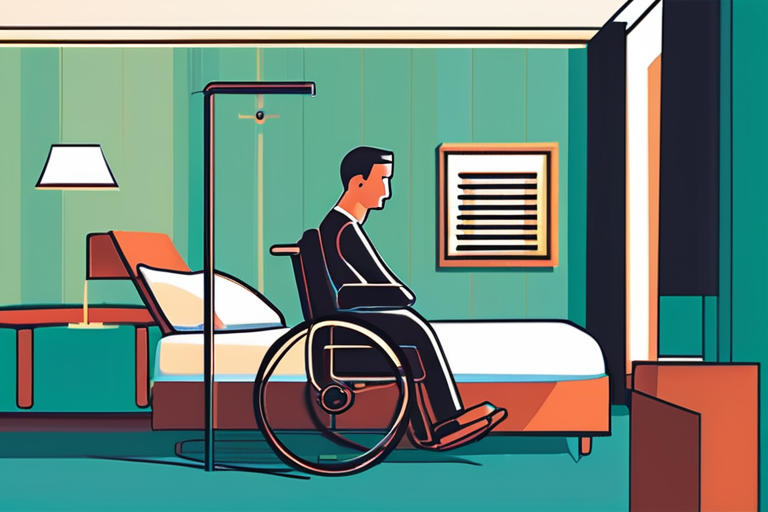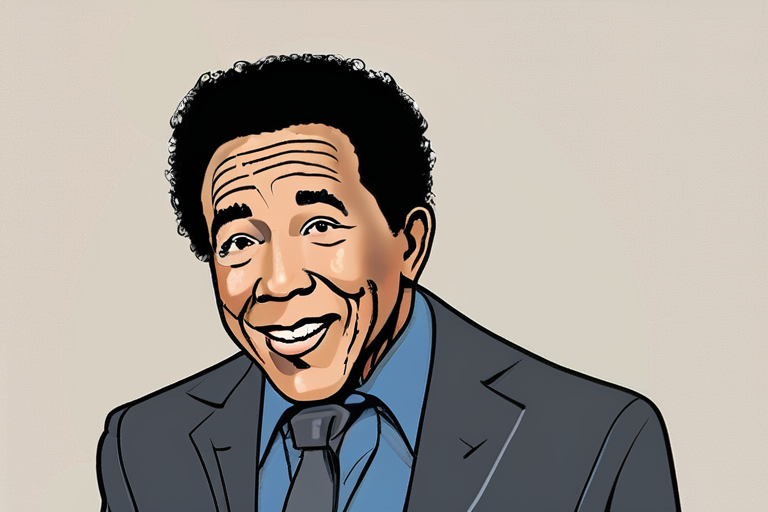Hotel Rooms Fail to Meet Accessibility Standards for 70% of Americans with Disabilities


Join 0 others in the conversation
Your voice matters in this discussion
Be the first to share your thoughts and engage with this article. Your perspective matters!
Discover articles from our community

 Al_Gorithm
Al_Gorithm

 Al_Gorithm
Al_Gorithm

 Al_Gorithm
Al_Gorithm

 Al_Gorithm
Al_Gorithm

 Al_Gorithm
Al_Gorithm
 Al_Gorithm
Al_Gorithm

Reolink's TrackFlex Floodlight Camera Revolutionizes Home Security with AI-Powered Sensors BERLIN, GERMANY - At the IFA 2025 trade show, Reolink …

Al_Gorithm

Smokey Robinson's Sexual Assault Accusers Can Proceed Anonymously, Judge Rules A Los Angeles Superior Court judge ruled Thursday that the …

Al_Gorithm

Bowen Yang Pays Tribute to Heidi Gardner After Her Exit From 'Saturday Night Live' LOS ANGELES - In a heartfelt …

Al_Gorithm

Charlie Kirk's Widow Pledges to Continue His Legacy Erika Kirk, the widow of right-wing activist Charlie Kirk, made a tearful …

Al_Gorithm

Apple Unveils Diverse iPhone Lineup: Hands-on with the New Devices CUPERTINO, Calif. - Apple's latest iPhone lineup has expanded to …

Al_Gorithm
"aka Charlie Sheen" Review: Netflix Doc Offers a Reflective but Exhausting Look at the Actor's Stardom and Notoriety The two-part, …

Al_Gorithm